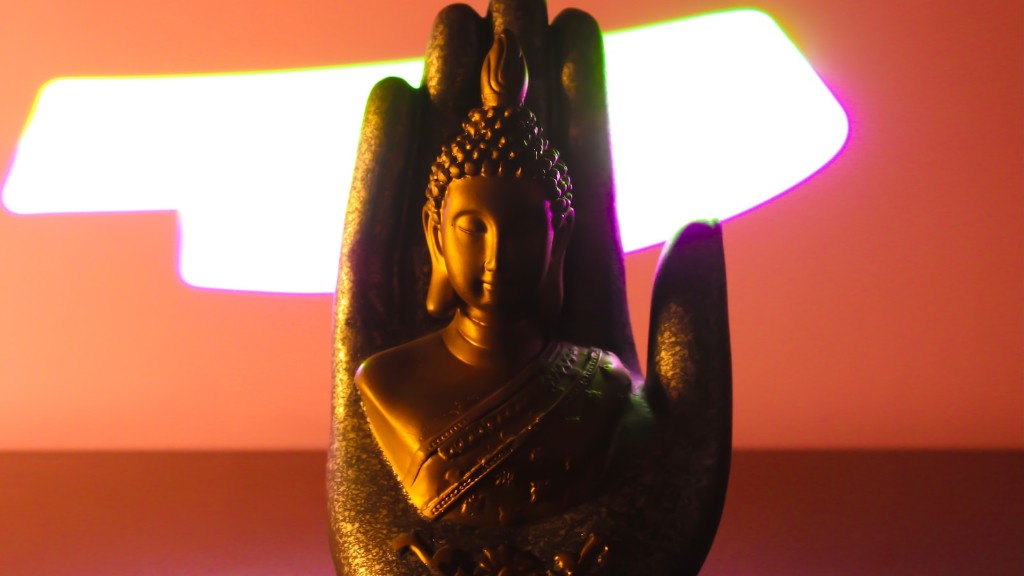Will Hinduism Rule The World?
Hinduism is an ancient religion with a unique set of beliefs and customs. It has been around for centuries, shaping the development of countries around the world and influencing the lives of people of many different cultures and backgrounds. From its ancient origins, Hinduism has grown to become one of the most widespread religions in the world today. This raises the question: will Hinduism eventually rule the world?
It is estimated that India contains 90% of the world’s Hindu population. Consequently, the answer to the question of whether Hinduism will rule the world lies largely in the future of India as a global superpower. According to some Indian scholars, the country is on the rise and is expected to influence world politics more in the future. This could mean that Hinduism’s influence will become more widespread, and it could eventually become a major religion in the world.
There are several signs that this could happen. Firstly, Hindu ideals are already influencing world politics. There is evidence that the Indian Prime Minister Narendra Modi has adopted certain elements of Hinduism into his government, including the belief that the cow is sacred and should be protected as a living being. Modi has also been vocal about the importance of preserving Hindu culture, citing it as a source of inspiration in his speeches.
Furthermore, Hindu ideals have been embraced by other countries, including the United States and China. This indicates that Hindu principles are becoming increasingly popular in the wider world, suggesting that the religion could gain even more traction in the future. Hinduism is also gaining converts in other parts of the world, with countries like South Africa and the United Kingdom having sizeable Hindu populations.
At the same time, it is worth noting that Hinduism is not a monolithic religion. While it has certain core beliefs, such as the importance of dharma (living righteously) and karma (reaping the rewards for one’s actions), there are a multitude of interpretations of Hinduism within India and around the world. This means that it is not necessarily the case that Hinduism will become the one “true” world religion.
It is also important to consider the practical implications of Hinduism ruling the world. If Hinduism were to become the major religion, it could lead to an increased emphasis on preserving traditional values and practices. This could mean that certain scientific and technological advancements are rejected on religious grounds, which could stunt economic and social progress.
In addition, it should be noted that Hinduism has historically been exclusive to those born into a Hindu family. As a result, other religions have been closely regulated or even outlawed in Hindu-dominated societies. This could lead to greater religious intolerance if Hinduism were to rule the world.
The Future of Hinduism
Ultimately, the answer to whether Hinduism will rule the world depends on how it continues to develop in the coming years. With Indian power on the rise, Hinduism’s influence is likely to grow, though it is difficult to predict how far this influence will go and what shape it will take. In any case, it is important to remember that at its heart, Hinduism is a complex and wide-ranging religion with many interpretations and beliefs, and its success will depend on its ability to embrace those differences.
India’s Role in Hinduism’s Expansion
Although Hinduism has already spread to countries outside India, its growth is largely connected to the country’s influence in the world. India is a superpower and is expected to rise further in the coming years, playing a leading role in the global economy, politics and culture. Consequently, India’s rise could lead to the further spread of Hinduism and an even greater influence of its beliefs and principles in the world.
A key factor in India’s rise is its economic growth, with the country becoming a hub for technology, manufacturing and other industries. As India’s economic clout increases, so too does its ability to influence the rest of the world. This could mean more opportunities for Indian companies and individuals to propagate Hinduism, leading to the spread of its teachings across the globe.
India has also seen increased investment in its education sector, with a greater focus on Vedic studies, Hindu philosophy and other topics related to the religion. This education, as well as the recent embrace of elements of Hinduism in government, could play a major role in propagating Hinduism and its values worldwide.
Implications of a Hindu-Dominated World
If Hinduism did eventually become the major world religion, there could be both positive and negative implications. On the one hand, the focus on preserving traditional values and practices could lead to a more holistic and spiritual society, with a greater emphasis on living in harmony with nature. At the same time, increased regulation of other religions could lead to greater religious intolerance and less respect for diversity.
Given the complexity of Hinduism and its range of beliefs, it is impossible to predict how it would rule the world if it were to become the major world religion. Nevertheless, it is clear that the ramifications would be significant, and it is important to consider these implications when assessing whether Hinduism will eventually rule the world.
The Influence of Non-Traditional Beliefs on Hinduism
One important factor to consider when assessing whether Hinduism will rule the world is the influence of non-traditional beliefs. In recent years, Hinduism has been heavily influenced by elements of other religions, such as Christianity and Buddhism. This has resulted in a new wave of adherents who have embraced aspects of Hinduism, while simultaneously rejecting traditional beliefs.
The adoption of some elements of non-traditional beliefs has been embraced by some Indian scholars, who view it as a way of modernising Hinduism without abandoning its core principles. At the same time, some experts have cautioned against the dilution of Hinduism’s teachings, which could ultimately lead to its decline. As such, the impact of non-traditional beliefs on the future of Hinduism remains uncertain.
The Role of India’s Youth in Hinduism’s Future
It is also worth considering the role that India’s youth will play in determining the future of Hinduism. With India’s population largely aged between 25 and 34, this demographic could be vital in deciding the religion’s future. India’s youth are often well-educated and keen to challenge traditional values, which could mean that they could help to modernise Hinduism and make it more acceptable to the rest of the world.
At the same time, some suggest that the younger generation is losing its connection to traditional Hindu values, leading to a decline in religious devotion. This is a worrying trend, particularly considering the potential consequences of a widespread decline in Hinduism. Nevertheless, the future of Hinduism largely rests on the younger generation’s attitude towards the religion.
Preserving Hinduism’s Values
Regardless of whether Hinduism eventually rules the world, it is clear that its teachings are already having a major global influence. In this sense, it is important to preserve Hindu values, particularly those that promote respect for diversity and peace. Furthermore, it is important to ensure that Hinduism’s current and future adherents understand its complex beliefs and traditions, so that they can appreciate its meaningfulness rather than merely following it blindly.
At the same time, it is important to remember that Hinduism is a multifaceted religion, with many interpretations and beliefs. Consequently, its future will depend not only on its potential to become a major world religion but also on its ability to embrace its diversity and accommodate modern ideals while maintaining its traditional values.

